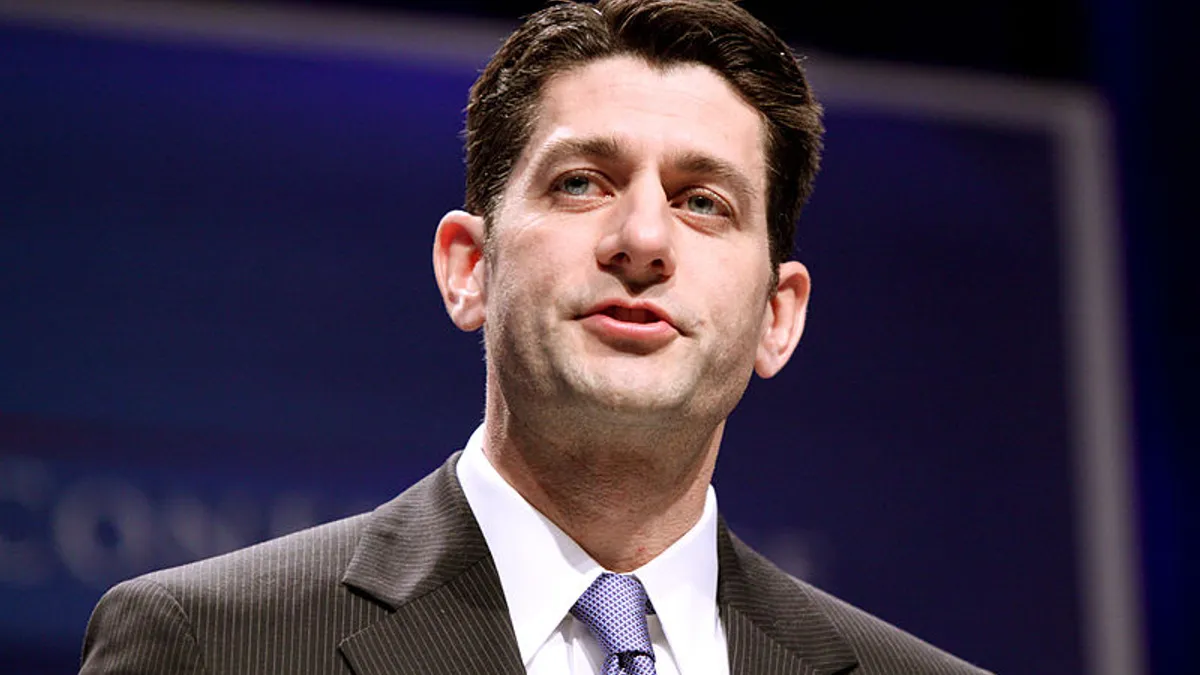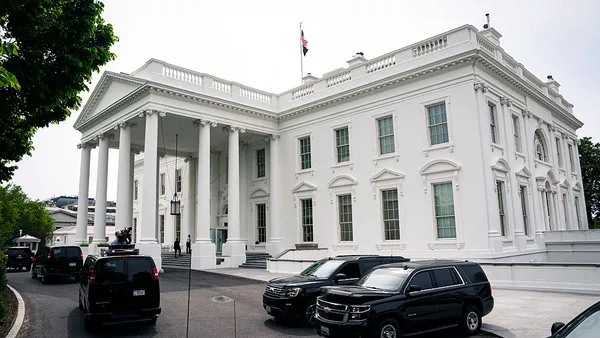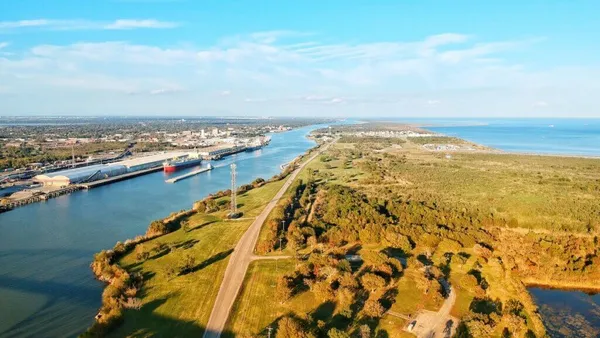Dive Brief:
- House Speaker Paul Ryan, R-WI, offered potential new details about President-elect Donald Trump's $1 trillion infrastructure plan during an interview with Charlie Rose, according to The Hill.
- Ryan said the program would use $40 of private money for every $1 of public money, and that public-private partnerships (P3s) would play a major role.
- The potential incorporation of a major P3 component into Trump's plan has been a source of concern for critics who say that it would allow equity investors to latch onto projects that could turn a profit while ignoring non-revenue-generating infrastructure needs.
Dive Insight:
Private investment of at least $137 billion is core to Trump's plan, as he said this amount would allow for $1 trillion worth of work. Although the details of the plan are still unclear, his team has said that under the program, developers would receive an 82% tax credit in return for their equity stake. Ryan also noted that lawmakers would have to come up with a plan to pay for the tax-credit portion of the infrastructure blueprint as well as any direct spending.
Private funding for infrastructure is a contentious point among officials and lawmakers. Earlier this week, outgoing Secretary of Transportation Anthony Foxx told the Associated Press that the private investment strategy contained in Trump's massive infrastructure plan can meet no more than 20% of the country's infrastructure requirements. Foxx said that P3s would be beneficial to the overall plan but that direct federal spending is necessary to ensure success.
This latest episode in the infrastructure saga is sure to irritate Democrats, particularly Senate Minority Leader Charles Schumer, D-NY, who has stated that any comprehensive infrastructure initiative must include a significant federal-spending component. Republicans, however, will likely take heart at the lean toward private funding, as Senate Majority Leader Mitch McConnell, R-KY, has voiced his opposition to any program that involves a major federal stimulus.
The most concrete infrastructure move that Trump has made thus far was to appoint two New York City developers to monitor, and most likely steer, his plans for the program. Richard LeFrak and Steven Roth will oversee a group of 15 to 20 engineers and developers Trump has assembled into a "task force" that will execute his vision.













